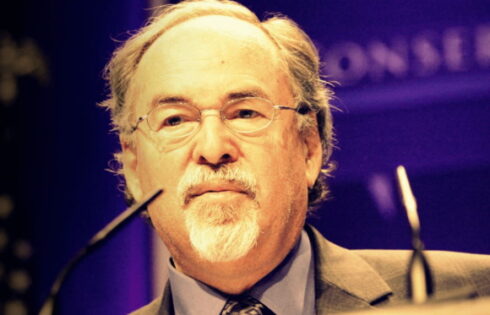
‘Irresponsible’ not to train ‘future practitioners for the realities they will be facing’
Climate change courses should be “mandatory” for aspiring doctors, according to medical students and clinicians in Michigan.
“My personal opinion is that it should be mandatory,” Dr. Lisa DelBuono told The College Fix via email. “Climate change has been politicized, but it is not a political issue… It would be irresponsible to not prepare future practitioners for the realities they will be facing.”
“Fossil fuels pollution and climate change are making Michigan residents sick today, and the impacts are on track to become much worse going forward,” she said. “The good news is that climate solutions are health solutions and most of what we do to address climate change will improve human health, save lives, and save healthcare dollars.”
She is the founder and president of Michigan Clinicians for Climate Action.
She said, “it is essential that professional schools educate their students about climate change and help them recognize impacts when they present in the office, clinic, or the ER.” She gave examples like the consequences of “extreme heat and humidity’ on people’s health.
DelBuono shared a survey by the Association of American Medical Colleges which shows that, between 2019 and 2021 the number of medical schools requiring climate change curriculum increased from 27 percent to 55 percent.
She said there has been pushback regarding this curriculum addition, even from physicians. Two common concerns include worries that the already dense curriculum would not have space to include more information. She also said med school professors may not be aware enough about the health impacts of climate change to teach it.
DelBuono tried to connect The Fix to med students involved in this effort, but none were available for comment. However, students at the University of Michigan and Michigan State University are involved with pushing for climate education in med school, according to Bridge Michigan.
Economist says climate change can have benefits
A trained economist who formerly taught at the University of Michigan Flint criticized the push to change the medical school course load.
Mark Perry, a senior fellow from Do No Harm told The Fix via media statement, “any curriculum relating to climate change in medical schools should definitely be optional, and not required, because it will likely be ideologically-biased and not balanced, and also especially if coverage of what becomes climate hysteria replaces science-based curriculum in medical schools.”
“If there is any climate change curriculum introduced in US medical schools it should be carefully balanced with a presentation of both the negative and positive effects of a changing climate,” the fellow with the anti-DEI medical reform group said.
Perry gave examples of some of the benefits of an increase in C02, including forest growth and higher crop yields.
He said, “a greener planet with increased food production and longer growing seasons has positive health effects.”
“A warmer planet also reduces cold-weather-related deaths,” the emeritus professor said.
He also said “climate-related deaths…have declined by 97% over the last century,” due to improvements in “technology and forecasting abilities.”
“This dramatic improvement in climate deaths, and the positive health effects that represents, never gets reported because the media focuses exclusively on negative, climate-doom stories.”
MORE: Summer heat wave due to climate change, Penn professor says
IMAGE: Africa images/Canva Pro
Like The College Fix on Facebook / Follow us on Twitter






Please join the conversation about our stories on Facebook, Twitter, Instagram, Reddit, MeWe, Rumble, Gab, Minds and Gettr.